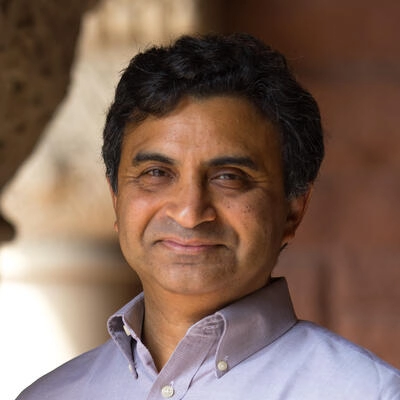Milind Tambe
Gordon McKay Professor of Computer Science & Director Center for Research in Computation and Society (CRCS), Harvard University
Director AI for Social Good, Google Research India
Milind Tambe is the Founding Co-Director of CAIS, the USC Center for Artificial Intelligence in Society, Helen N. and Emmett H. Jones Professor in Engineering at the University of Southern California(USC), and Professor in the Computer Science and Industrial and Systems Engineering Departments. He is recipient of the IJCAI (International Joint Conferenceon AI) John McCarthy Award (2018), ACM Autonomous Agents Research Award (2005), AAAI Robert S. Engelmore Memorial Lecture Award (2019), as well as a fellow of AAAI (Association for Advancement of Artificial Intelligence) (2007) and a fellow of ACM (Association for Computing Machinery) (2013). He is also a recipient of the Christopher Columbus Fellowship Foundation Homeland security award(2010), the INFORMS Wagner prize for excellence in Operations Research practice (2012), the Rist Prize of the Military Operations Research Society (2011), IBM Faculty Award(2012), Okawa foundation faculty research award (2004), the RoboCup scientific challenge award(1999), Orange County Engineering Council Outstanding Project Achievement Award (2015), USC Associates Award for Creativity in Research (2014) and USC Viterbi School of Engineering use-inspired research award (2009).Prof. Tambe has contributed several foundational papers in Artificial Intelligence in areas of agents and multiagent systems and computational game theory. For this research, he has received the influential paper award and best paper awards at a number of premier Artificial Intelligence Conferences and workshops — these have included International Joint Conference on AI (IJCAI), International Conference on Autonomous Agents and Multiagent Systems (AAMAS) and International Conference on Intelligent Virtual Agents (IVA) (e.g., recent best paper awards include AAMAS'2016, IAAI'2016, IJCAI'15, AAMAS'12, AAMAS'11, IVA'11, AAMAS'09). Furthermore, today, the security games framework that Prof. Tambe pioneered has been deployed and tested for security optimization, both nationally and internationally, by agencies such as the US Coast Guard and the Federal Air Marshals Service, by various police departments in Los Angeles, as well as by non-governmental organizations committed to wildlife conservation. This research has led him and his students to receive the US Coast Guard Meritorious Team Commendation from the Commandant(2013), US Coast Guard First District’s Operational Excellence Award(2011), Certificate of Appreciation from the US Federal Air Marshals Service (2011) and special commendation given by the Los Angeles World Airports police from the city of Los Angeles(2009). Finally, his work with algorithms for exploiting social networks for HIV prevention were listed by Mashable.com in their “26 incredible innovations that improved the world in 2015”.
